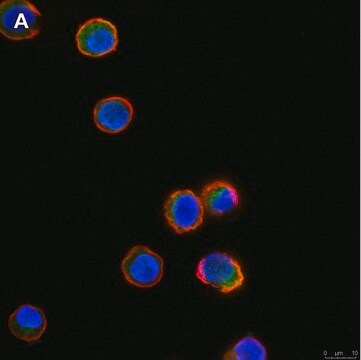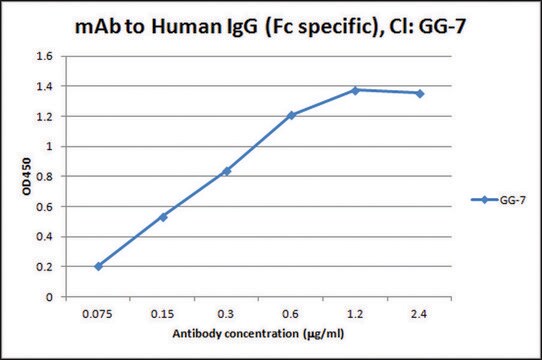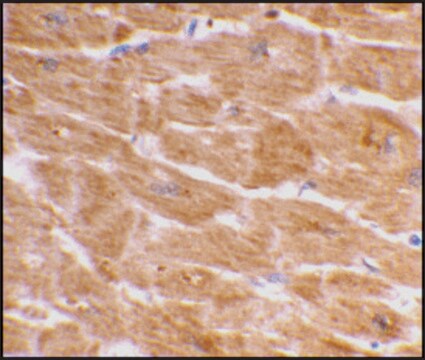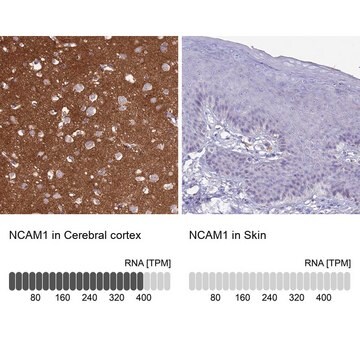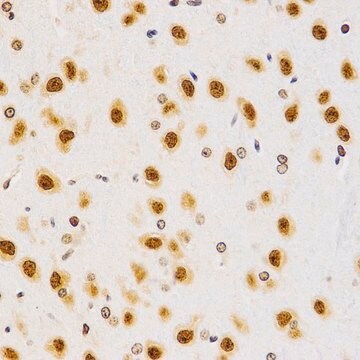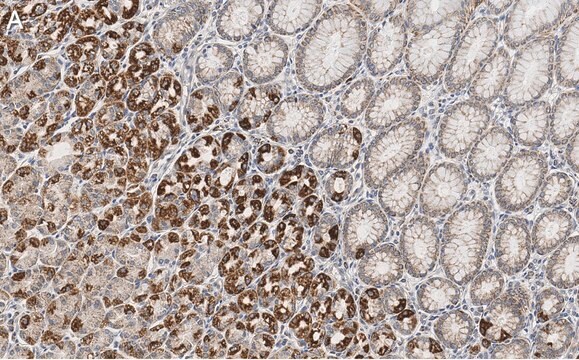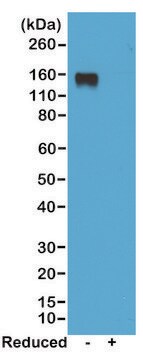ABE2909
Anti-phospho Histone H4 (Tyr51)
from rabbit
Sinónimos:
H4, H4Y51, H4pY51
About This Item
Productos recomendados
biological source
rabbit
Quality Level
antibody form
affinity isolated antibody
antibody product type
primary antibodies
clone
polyclonal
species reactivity
human
packaging
antibody small pack of 25 μL
technique(s)
immunocytochemistry: suitable
immunofluorescence: suitable
western blot: suitable
isotype
IgG
NCBI accession no.
UniProt accession no.
shipped in
ambient
target post-translational modification
phosphorylation (pTyr51)
Gene Information
human ... HIST2H4B(554313)
General description
Specificity
Immunogen
Application
Epigenetics & Nuclear Function
Immunofluorescence Analysis: A representative lot detected phospho Histone H4 (Tyr51) in HEK293 Tie2 cells treated with Angiopoietin 1 (ANG1) and ionizing radiation (Hossain, MB., et al. (2016). Sci. Adv. 2; e1501290).
Quality
Immunocytochemistry Analysis: A 1:250 dilution of this antibody detected phospho Histone H4 (Tyr51) in HEK293 Tie2-myc cells treated with Angiopoietin 1 (ANG1).
Target description
Physical form
Storage and Stability
Handling Recommendations: Upon receipt and prior to removing the cap, centrifuge the vial and gently mix the solution. Aliquot into microcentrifuge tubes and store at -20°C. Avoid repeated freeze/thaw cycles, which may damage IgG and affect product performance.
Other Notes
Disclaimer
¿No encuentra el producto adecuado?
Pruebe nuestro Herramienta de selección de productos.
Storage Class
12 - Non Combustible Liquids
wgk_germany
WGK 2
flash_point_f
does not flash
flash_point_c
does not flash
Certificados de análisis (COA)
Busque Certificados de análisis (COA) introduciendo el número de lote del producto. Los números de lote se encuentran en la etiqueta del producto después de las palabras «Lot» o «Batch»
¿Ya tiene este producto?
Encuentre la documentación para los productos que ha comprado recientemente en la Biblioteca de documentos.
Nuestro equipo de científicos tiene experiencia en todas las áreas de investigación: Ciencias de la vida, Ciencia de los materiales, Síntesis química, Cromatografía, Analítica y muchas otras.
Póngase en contacto con el Servicio técnico